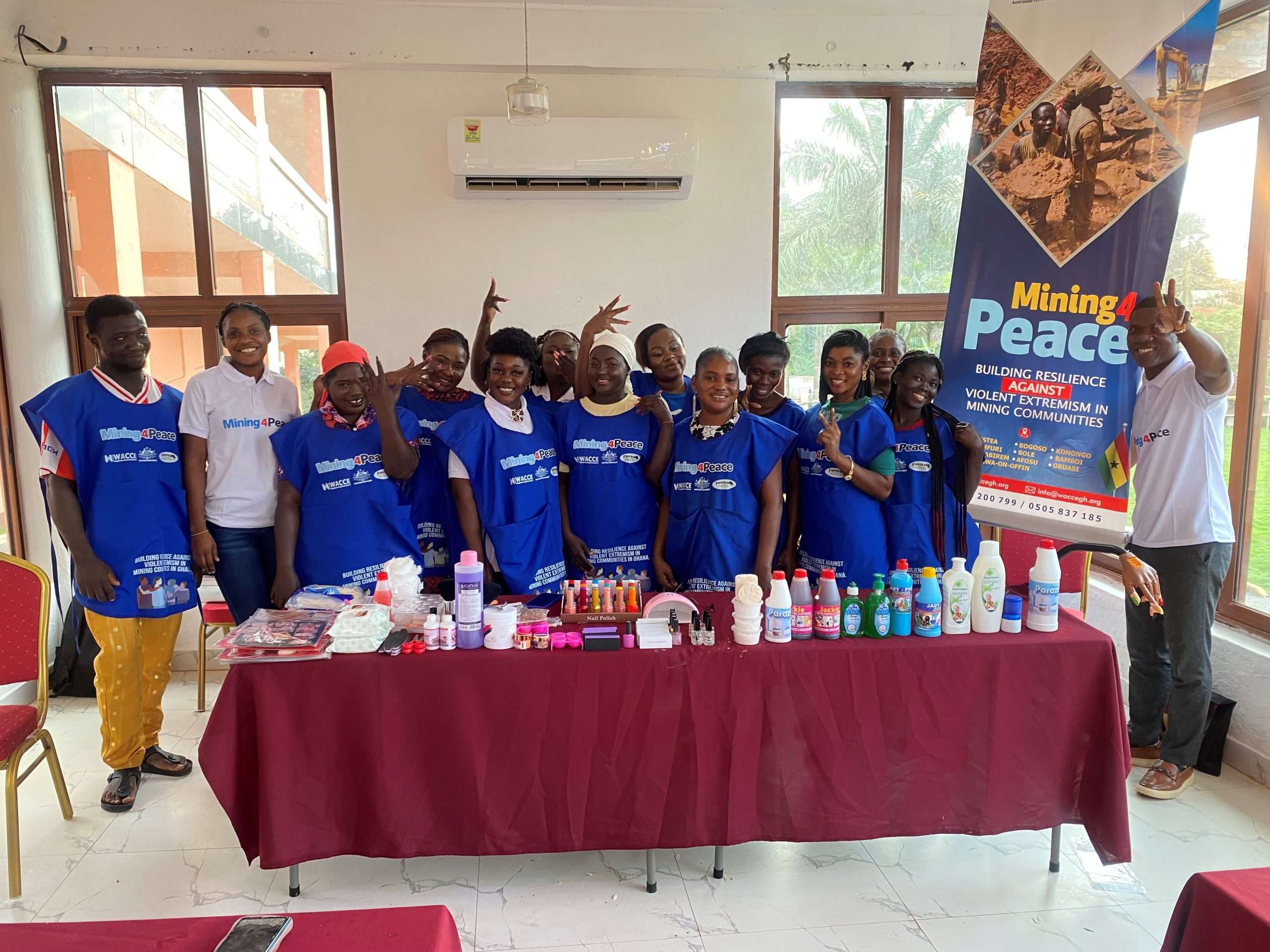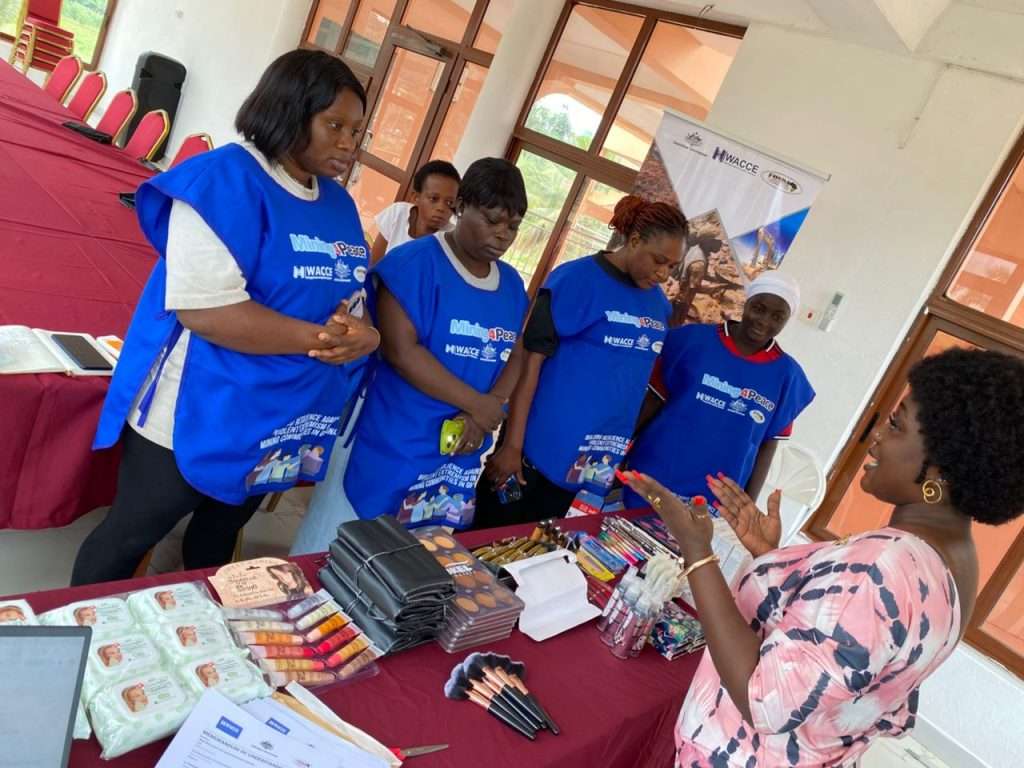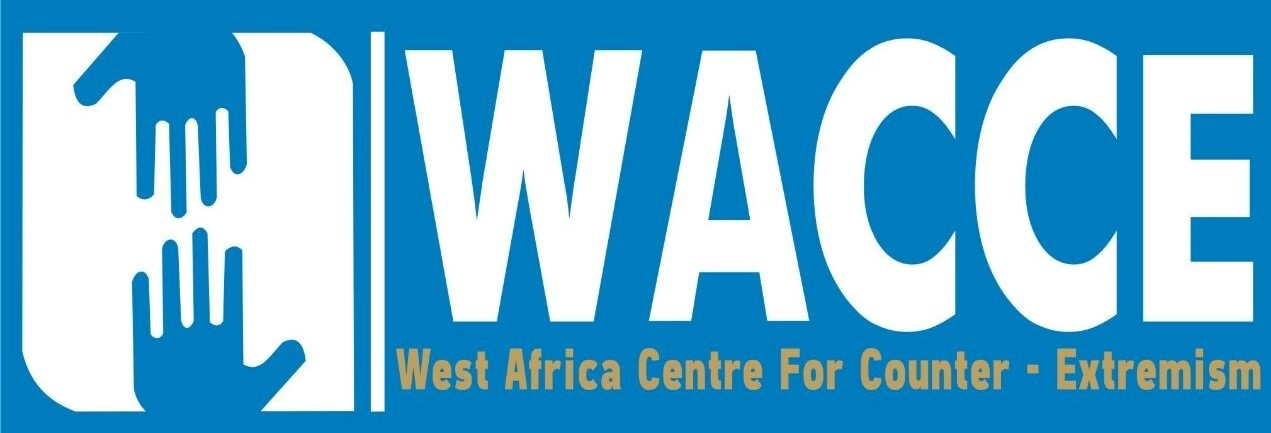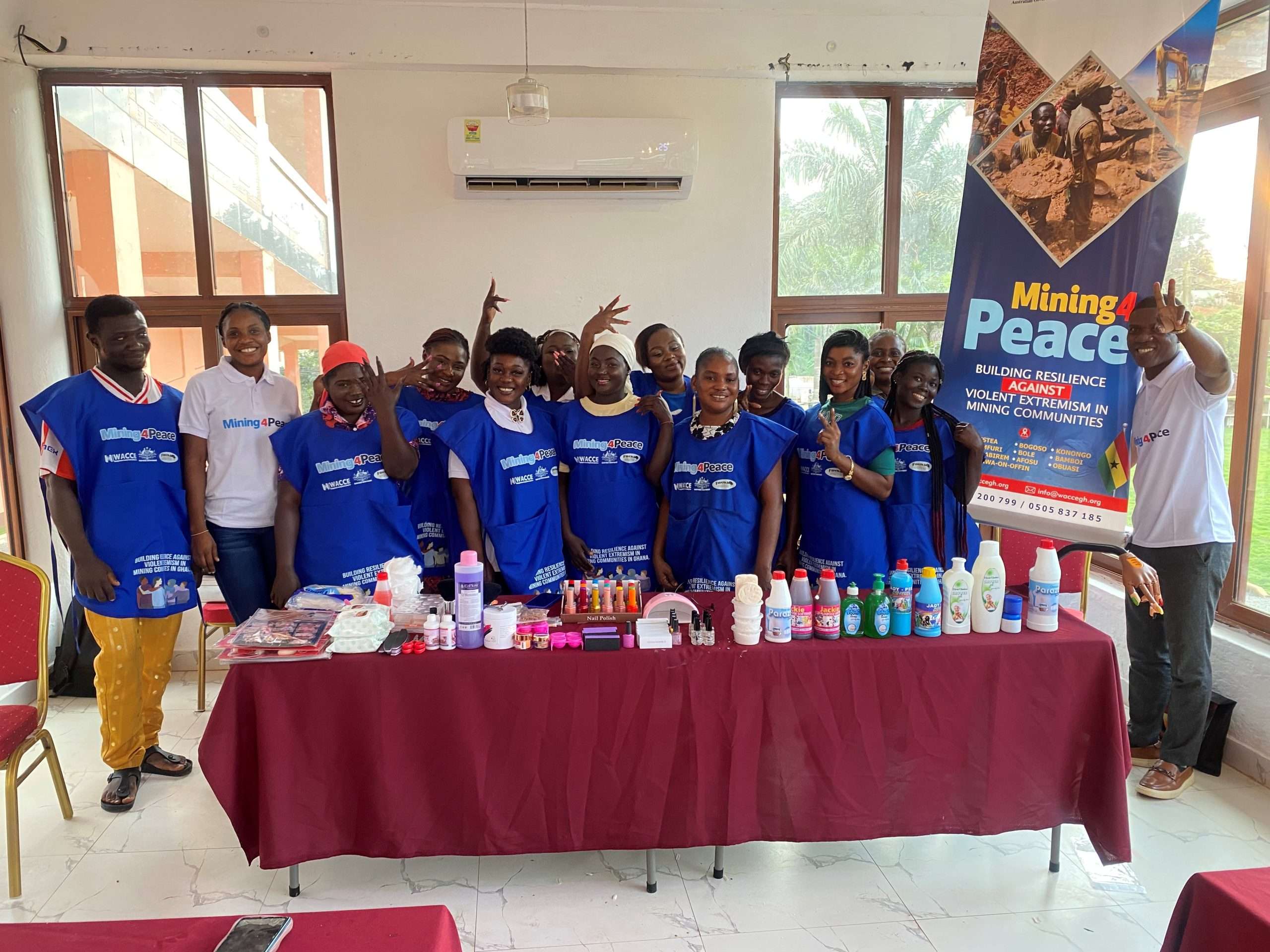The West Africa Centre for Counter-Extremism (WACCE) in collaboration with the Foundation for Security and Development in Africa (FOSDA) has successfully implemented the second phase of its Mining for Peace project, focusing on the Western and Central Regions of Ghana.

The initiative forms part of a broader consortium effort across five regions to address vulnerabilities in mining communities, where illegal mining (galamsey), land degradation, and unemployment continue to fuel insecurity and social tension. The second phase prioritized skills training and alternative livelihoods as practical solutions to reduce economic dependence on illegal mining and build peace in affected areas.
From 24th to 27th September 2025, WACCE trained forty (40) participants drawn from Bogoso, Prestea, Ayanfuri, and Dunkwa-on-Offin in key vocational skills including soap and detergent production, makeup artistry, nail beautification, barbering, and driving. The training was designed to economically empower participants, especially the youth by equipping them with sustainable and marketable skills that can serve as safer and more dignified alternatives to galamsey.
Speaking at a press briefing in Accra, WACCE’s Executive Director, Mutaru Mumuni Muqthar, explained that Mining for Peace is a two-year project funded by Australia’s Department of Foreign Affairs and Trade (DFAT), and is in line with the Government of Ghana’s agenda to address insecurity and curb the menace of galamsey through skills training and livelihood support initiatives.
The project is aimed at economically empowering participants, reducing unemployment, and promoting peaceful coexistence and building resilience against extremist exploitation in mining areas. This initiative is taking place at a critical time when Ghana is struggling with the increasing menace of illegal mining (galamsey). Already, there are fears that extremists could be targeting to exploit the poorly governed mining space in Ghana as citizens from more than 5 neigbouring countries are involved in Ghana’s illegal mining space. Mining for Peace is aimed at contributing to reducing the vulnerabilities for violence and radicalization in mining communities in Ghana.
It builds on the first phase of the project involving a survey, capacity building and sensitization of 500 vulnerable youth and community representatives through community forums, and building the capacity of 100 identified local Civil Society Organizations (CSOs) and Community-Based Organizations (CBOs) to enable them to help build resilience against the threat in mining communities in the five regions (Western, Central, Ashanti, Eastern and Savannah) of Ghana. The skills training activities have already commenced in the various project locations and are expected to be concluded by the end of October.
Mutaru indicated that, the project will involve a National Forum to be held in Accra on the Risk of Violent Extremism in Mining Communities in Ghana. The national forum will bring national focus to the threat in mining communities and inspire urgent national commitment to dealing with the canker.
He also said, selected beneficiaries will participate in the dialogue to share their experiences and demonstrate the impact of livelihood interventions on countering illegal mining and strengthening community resilience. Illegal mining is so lucrative that in spite of the associated high risks, many young people including those who acknowledge the harm are willing to take the risk, due to the lack of alternative economic opportunities. This makes it harder to address the issue of Galamsey. But with deliberate and targeted interventions, important initiative that can make a significant impact addressing the challenge, it is possible to reduce the environmental destruction by illegal miners.




